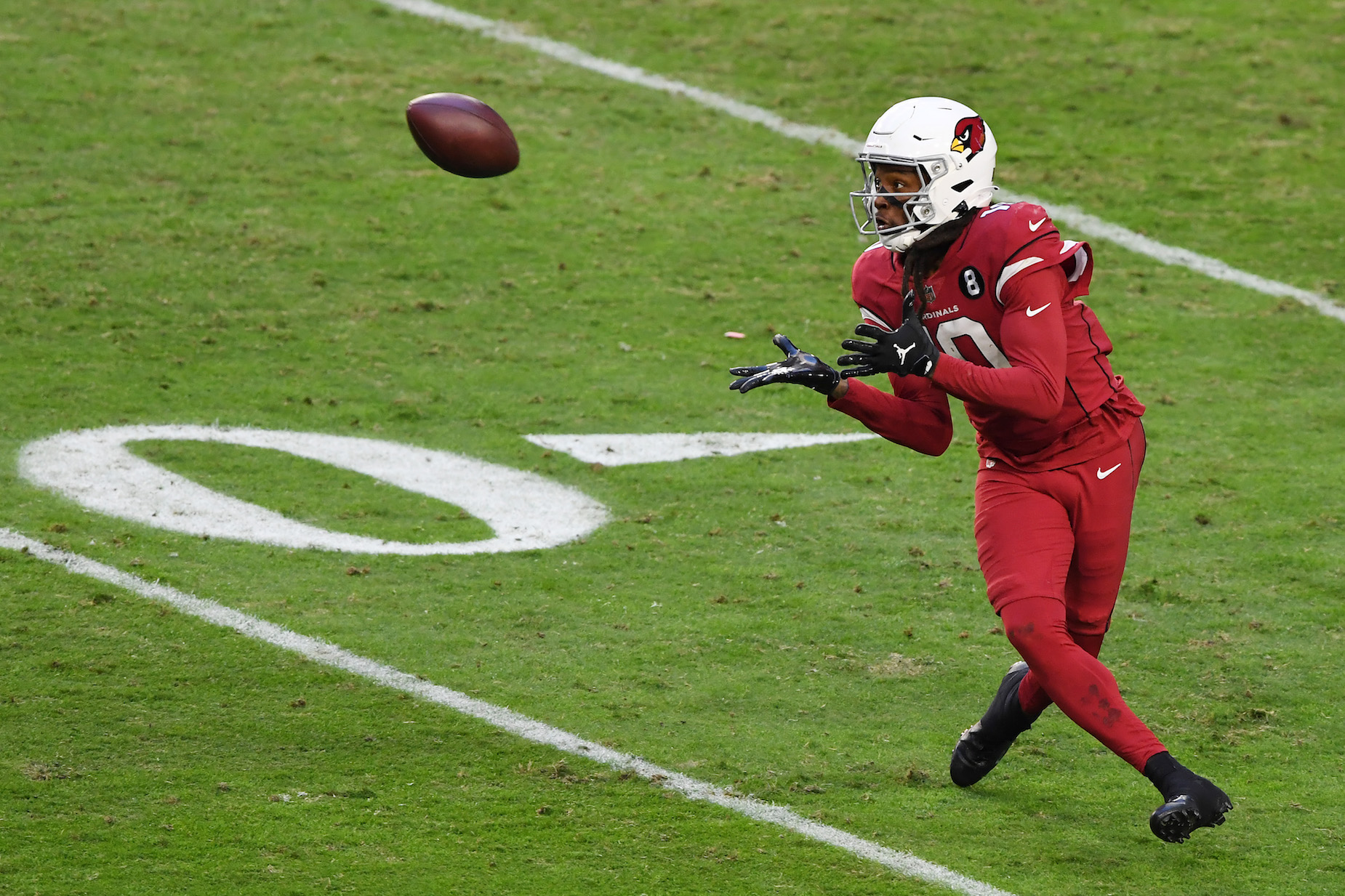NFL
Why Did Bill O’Brien Trade DeAndre Hopkins to the Arizona Cardinals?

While big-time trades aren’t as common as they once were, we still occasionally witness a deal that shakes up the entire sports world. One of those came in March 2020, when Bill O’Brien and the Houston Texans traded wide receiver DeAndre Hopkins to the Arizona Cardinals. At the time, the move was immediately panned as terrible personnel management; months late, it’s still looking pretty bad.
More than halfway through the 2020 NFL season, the Houston Texans are floundering while the Arizona Cardinals are flying high. In light of that reality, let’s revisit the trade and why Bill O’Brien decided to trade DeAndre Hopkins.
DeAndre Hopkins is a star, but that didn’t stop Bill O’Brien from trading him to the Arizona Cardinals
RELATED: Before Becoming an NFL Star, DeAndre Hopkins Was a Standout on the Basketball Court
While it might not appeal to football purists, the modern NFL is built around quarterbacks and wide receivers. In Deshaun Watson and DeAndre Hopkins, the Houston Texans had the makings of a potent offense.
Hopkins, of course, made a name for himself at Clemson before joining the Texans as the 27th-overall pick in the 2013 NFL draft. He started off as the team’s number two receiver, behind Andre Johnson, but quickly proved that he was more than capable of taking over the top spot.
During his seven seasons with the Texans, Hopkins pulled in 632 catches for 1,048 yards and 54 touchdowns; he also made four Pro Bowls and earned a place on three All-Pro First Teams. That resume wasn’t enough for Bill O’Brien, though.
In March 2020, O’Brien sent Hopkins packing, dealing the receiver and a 2021 fourth-round draft pick to the Arizona Cardinals in exchange for running back David Johnson and two draft picks. As you might remember, no one outside of Arizona thought the Texans made a smart deal.
Why did Bill O’Brien trade the Houston Texans’ top receiver?
RELATED: DeAndre Hopkins Reveals Why He Didn’t Use an Agent When Negotiating His New Massive Deal
In theory, Bill O’Brien traded DeAndre Hopkins in an effort to make the Houston Texans better; from a talent perspective, though, he didn’t accomplish that goal. So what motivated him to move the receiver?
As Vinnie Iyer explained for the Sporting News, O’Brien had concerns about Hopkins from both a coach’s and general manager’s perspective. In regard to the former, “they had a strained relationship, with O’Brien not valuing Hopkins as one of the team’s core players and leaders enough”; acting in the latter role, “O’Brien made a cold and panicky move” when faced with the possibility of handing Hopkins a new, more expensive contract.
That “strained relationship,” however, might have been gone beyond simply not seeing eye-to-eye. According to Michael Irvin, O’Brien compared meeting with Hopkins to sitting down with Aaron Hernandez and made a comment about the receiver’s ‘baby mamas.’ While Hopkins took to Twitter and said that the situation was “blown way out of proportion,” it’s clear that something broke down behind the scenes.
DeAndre Hopkins and the Arizona Cardinals are still making the Houston Texans regret their decision
RELATED: We Know Cardinals Star DeAndre Hopkins Can Run, but Can He Walk the Runway?
In October, the Houston Texans finally bit the bullet and relieved Bill O’Brien of his duties. While the man behind the trade might be gone, DeAndre Hopkins and the Arizona Cardinals keep adding insult to injury.
In the NFC West, the Cardinals are sitting atop the division with a 6-3 record. Hopkins and Kyler Murray look like an exciting partnership that can terrorize defenses for years to come. Meanwhile in Texas, Deshaun Watson sorely lacks weapons; David Johnson, who O’Brien brought to Houston in the Hopkins deal, has only racked up 408 touchdowns and three touchdowns through Week 10.
On an individual level, the receiver has also pulled in 67 catches for 861 yards and four touchdowns. As his Hail Mary reception in Week 10 demonstrated, Hopkins is still capable of doing the impossible and making things happen; in the modern NFL, that sort of ability is what separates truly special players from the rest of the pack.
Flashing back to March, everyone knew that Bill O’Brien made a mistake by dealing DeAndre Hopkins to the Arizona Cardinals. Eight months later, however, things have gotten even worse for the Houston Texans.
Stats courtesy of Pro-Football-Talk











